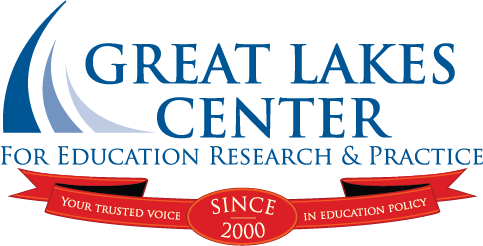
Think Twice Weekly Report
FEBRUARY 17, 2024 - February 23, 2024
The Think Twice Weekly Report compiles public education-related policy reports, research and articles of interest to policymakers, educators and stakeholders. This list is not exhaustive but is meant to highlight recent reports that may be used to support or undermine the work of our subscribers in supporting public schools. We encourage you to take a moment to scan these reports and determine if they may be used by policy makers to assist or erode your mission.
 Policy Reports
Policy Reports
K-12 Education
Source: Network for Public Education
Date: 2/26/2024
Public Schooling in America; Measuring Each State's Commitent to Democratically Governed Schools
Public Schooling in America rates the states on 42 factors that impact public education. The report includes a special focus on student protection—both inside and outside the public school system. Rated categories include: Privatization, Homeschooling, Financial Support for Public Schools and Freedom to Teach and Learn.
Accountability and Testing
Source: Pioneer Institute
Date: 2/22/2024
MCAS, NAEP, and Educational Accountability
Over the past 30 years, rigorous standards, assessments, and accountability for outcomes have propelled Massachusetts public schools to become the nation's best. Taking away the high-stakes component of MCAS would weaken the accountability system and lead stakeholders to de-emphasize the assessment data that drives high-quality instruction, according to a new study published by Pioneer Institute.
Education and the Workplace
Source: Fordham Institute
Date: 2/20/2024
Ohio's Career-Technical Education Landscape: An overview of CTE at the high school level
Career-technical education integrates traditional academic skills and knowledge with technical and job-specific skills. Over the last several years, Ohio policymakers have prioritized expanding access to career-technical education, funded programs to help students earn credentials, and bolstered initiatives related to work-based learning.
These are commendable efforts. But Ohio's career-technical sector is increasingly complex. The average student and taxpayer do not realize all it has to offer. The policy brief below seeks to rectify that by providing a broad overview of the career-technical opportunities available to Ohio high schoolers, as well as the benefits of participating.
 Reports Reviewed
Reports Reviewed
GLC seeks to ensure that policy briefs impacting education reform are based on sound, credible academic research. Below are reviews conducted with GLC support.
Once Again, University of Arkansas Charter Funding Report Makes Unfounded Claims
Source: University of Arkansas Department of Education Reform
Reviewed by: Mark Weber, Rutgers University
Mark Weber of Rutgers University and the New Jersey Policy Perspective reviewed Still a Good Investment: Charter School Productivity in Nine Cities and details the faulty methodology that undermines the validity of its conclusions.
 What We're Reading
What We're Reading
Research and articles that we want to highlight for subscribers as potential resources:
Students lose out as cities and states give billions in property tax breaks to businesses − draining school budgets and especially hurting the poorest students
By: Christine Wen, Danielle McLean, Kevin Welner, Nathan Jensen, The Conversation
A three-month investigation by The Conversation and three scholars with expertise in economic development, tax laws and education policy shows that the cash drain from economic development tax incentives is not equally shared by schools in the same communities. At the local level, tax abatements and exemptions often come at the cost of critical funding for school districts that disproportionately serve students from low-income households and who are racial minorities.
Education Secretary Calls Diversity Program Cuts Latest 'Boogeyman' To Divide Schools
By: Philip Lewis, HuffPost
U.S. Education Secretary Miguel Cardona said that he believes attacks on diversity programs in public schools are part of a larger campaign to “decrease the confidence in our public schools.”
Why Schools Still Struggle to Provide Enough Mental Health Resources for Students
By: Nadia Tamez-Robledo, EdSurge
The National Center for Education Statistics released its biennial Crime, Violence, Discipline, and Safety in U.S. Public Schools report covering the 2021-22 academic year. It uses survey responses from principals of nearly 2,700 P-12 schools to take the pulse of myriad issues that affect students and how schools operate.
Schools face big challenges accommodating migrants who've crossed the border
By: Jenny Brundin, NPR
A collapsed border deal means no relief for public schools straining to educate thousands of new international students. Colorado districts are adapting and learning from one another.
Policies Restricting Teaching About Race and Gender Spill Over into Other States and Localities
By: Ashley Woo, Melissa Kay Diliberti, Elizabeth D. Steiner, RAND
In this report, the authors explore how the impact of state policies restricting teachers' instruction is spilling over into places where no such restrictions exist, and why teachers who are not subject to state-level restrictions are choosing on their own to limit their classroom discussions of political and social issues. The authors also examine how teachers' instructional decisions are associated with their state and local policy contexts and local political climate.
